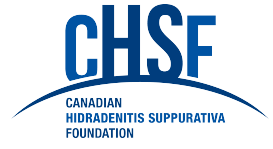Diet is a crucial aspect of overall health and well-being, and its potential impact on a chronic inflammatory skin condition such as Hidradenitis Suppurativa (HS) is an intriguing area of exploration. Increasingly, researchers and healthcare professionals recognize the importance of personalized nutrition for preventing and managing various health conditions, and HS is no exception.
While there is still much to learn about the precise mechanisms by which nutrition may influence HS symptoms and progression, existing evidence supports the idea that targeted diet changes could improve the quality of life of those living with this condition.
With our commitment to empowering Hidradenitis Suppurativa patients and fostering optimal well-being, we believe it’s essential to delve into the often-overlooked connection between diet and Hidradenitis Suppurativa. By understanding this relationship and exploring evidence-based strategies, we aim to provide our readers with practical tools for nutritionally managing their condition and ultimately improving their health.
Read on as we explore the world of nutrition, striving to uncover the power of nutrition, its potential impact on HS, and how the right nutritional approach may help you better manage your condition and achieve a healthier, more fulfilling life.
Understanding the Diet and Inflammation Connection
Inflammation is a key factor in the development of Hidradenitis Suppurativa, and nutrition can play a significant role in modulating inflammatory processes within the body. Certain foods have been shown to promote inflammation, while others can help curb it.
So, an anti-inflammatory diet may be a helpful strategy for managing HS symptoms. This approach emphasizes the consumption of anti-inflammatory foods like fresh fruits and vegetables, whole grains, lean proteins, and healthy fats while restricting the intake of processed foods, refined carbohydrates, and unhealthy fats.
Potential Dietary Triggers of HS Flare-Ups

While every individual’s experience of this chronic disease emphasizes is unique, research has identified several nutritional triggers that may worsen HS symptoms. Avoiding or significantly reducing the intake of such foods may help those with HS better manage their flare-ups. Some potential nutritional triggers include:
1. Dairy products
Some studies have suggested a link between high dairy consumption and the exacerbation of HS symptoms. Consider experimenting with non-dairy alternatives, such as plant-based milk or lactose-free options.
2. Foods high in refined sugars
A diet heavy in refined sugars can promote inflammation and negatively affect skin health. Instead, opt for natural sweeteners, fruit, and whole grains.
3. Nightshade vegetables
A subset of Hidradenitis Suppurativa patients have reported sensitivity to nightshade vegetables, such as tomatoes, potatoes, peppers, and eggplant. Monitor your symptoms after consuming these vegetables to determine if they may be contributing to your flare-ups.
Exploring Evidence-Based Dietary Approaches

In addition to considering individual dietary triggers and adopting an anti-inflammatory diet, several specific dietary approaches have shown promise in addressing HS. While further research is needed, these healthy diets may be worth exploring for those looking to manage their HS symptoms through nutritional modifications better:
1. The Mediterranean Diet
Rich in fruits, vegetables, whole grains, legumes, fish, and healthy fats, the Mediterranean diet has been associated with a reduced risk of chronic inflammatory diseases and may be beneficial for those with Hidradenitis Suppurativa.
2. The Low-Histamine Diet
Histamine, a compound found in certain foods, can stimulate an inflammatory response in some individuals. A low-histamine diet, which restricts foods high in histamine, such as aged cheeses, fermented foods, and cured meats, has been reported to have health benefits for a subset of Hidradenitis Suppurativa patients.
3. Weight Management
For individuals with HS who are overweight or obese, adopting a balanced diet focused on weight loss may help alleviate some symptoms, as excess weight gain has been associated with worsened severity of disease.
Personalising Your Nutritional Strategy
When embarking on a dietary journey to manage Hidradenitis Suppurativa, it’s essential to adopt a personalized approach. What works for one person may not work for another, and each individual’s needs and preferences must be taken into account. Consult with a healthcare professional, such as a registered dietitian or nutritionist, to develop a tailored nutrition plan suited to your unique requirements.
Harnessing the Power of Nutrition for HS Management
While the connection between nutrition and HS is still an emerging field of study, nutrition has the potential to play a significant role in managing this chronic skin condition. Remember that nutrition is just one aspect of comprehensive HS management, and it’s important to work closely with a healthcare provider to address all facets of your HS journey.
If you’re ready to explore the connection between nutrition and HS further, start by consulting with a qualified healthcare provider like our team at Canadian Hidradenitis Suppurativa Foundation to ensure you receive the most accurate and reliable guidance on all things HS awareness in Canada, tailored to your specific needs.



